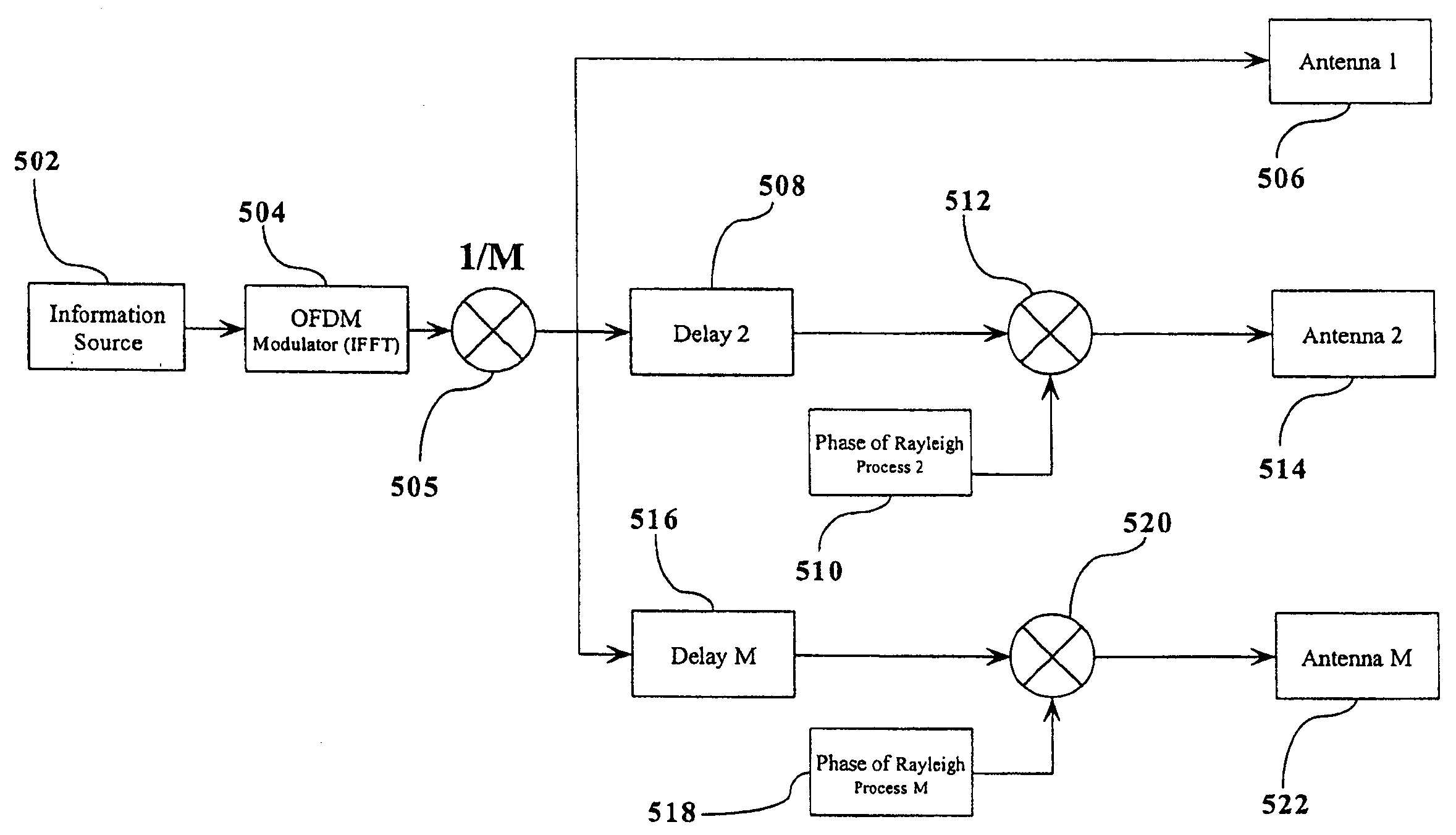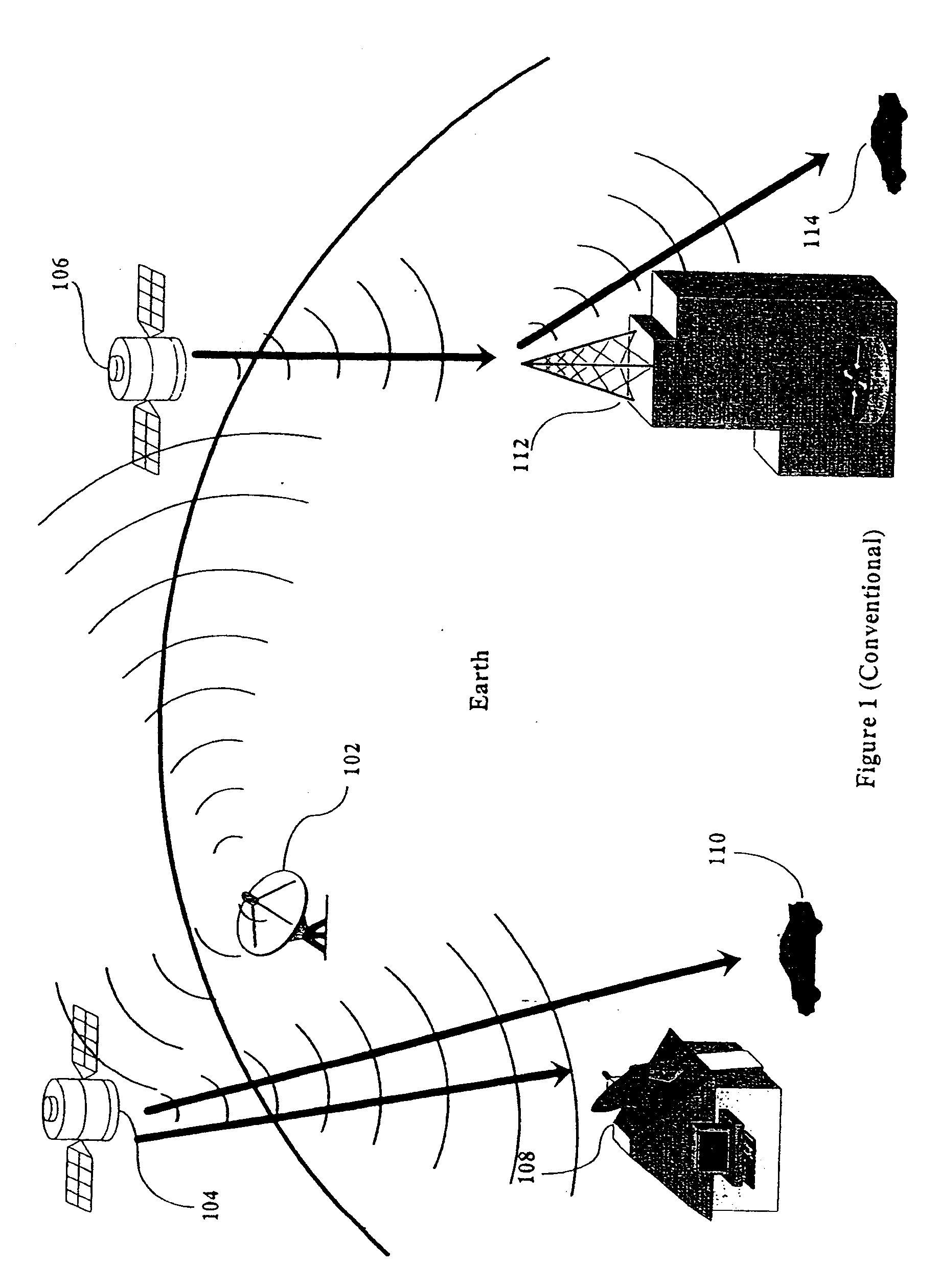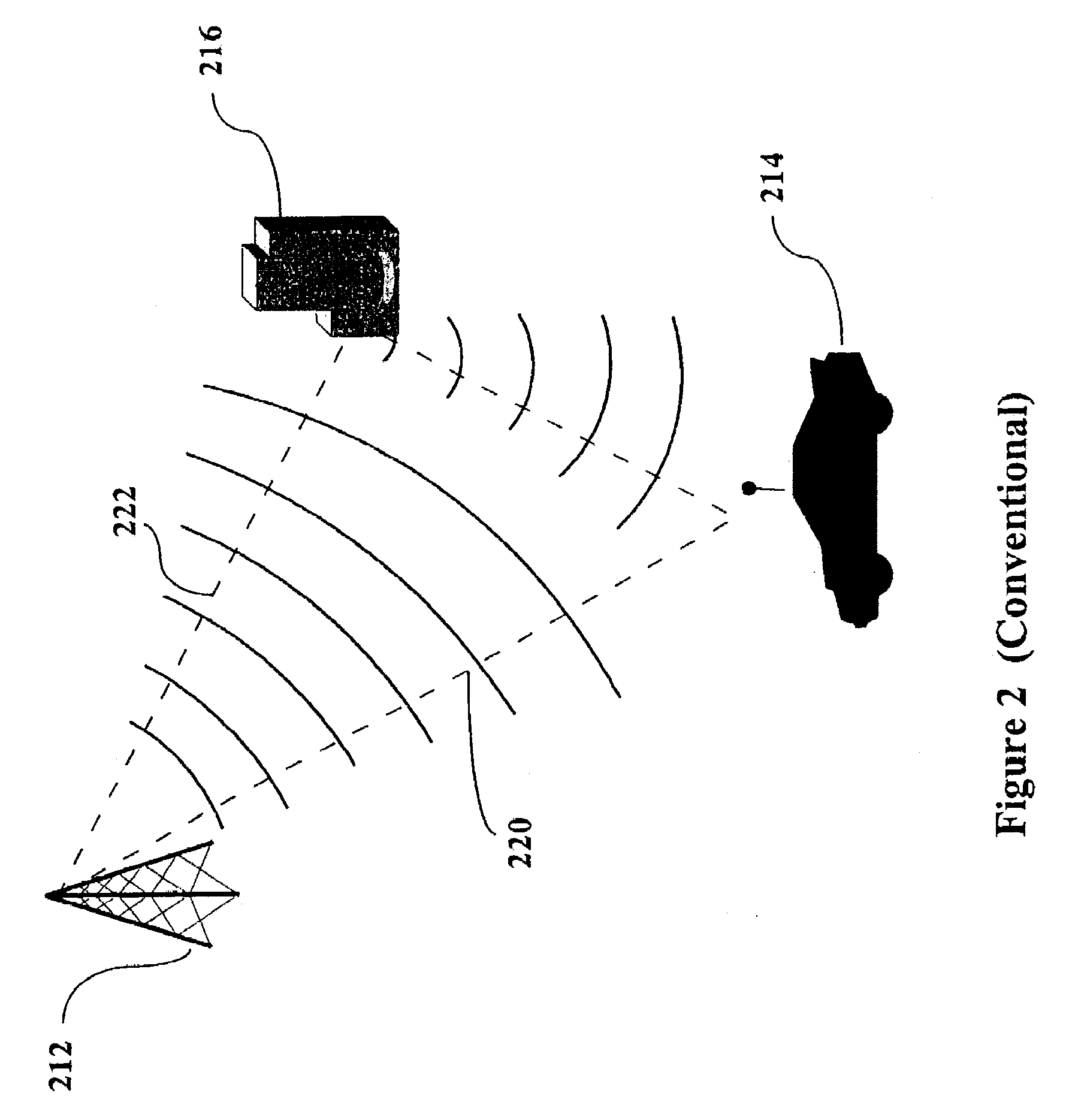Dithering scheme using multiple antennas for OFDM systems
a technology of digital audio and multi-antennas, applied in the field of satellite digital audio radio system performance improvement, can solve the problems of severe and rapid fluctuations in the received signal strength, multi-path propagation, phase and amplitude constructive and/or destructive addition, etc., to achieve the effect of improving the bit-error rate of fading sub-channel information without significantly affecting the overall performance of ofdm demodulator, and reducing the length of fading
- Summary
- Abstract
- Description
- Claims
- Application Information
AI Technical Summary
Benefits of technology
Problems solved by technology
Method used
Image
Examples
Embodiment Construction
[0018]FIG. 1 illustrates a conventional satellite radio system. An earth station 102 is utilized to broadcast content to satellites 104 and 106. In the example illustrated in FIG. 1, satellite 104 reflects the transmitted content back to earth to a wide area, including the vicinity of a residence 108 and a vehicle 110. Assuming that residence 108 and vehicle 110 are equipped with appropriate receiving equipment, each will receive the satellite transmission containing the content and be able to listen to the content being broadcast. Since residence 108 is stationary, the receiver in residence 108 will continue to receive the transmitted content as long as satellite 104 remains within range of residence 108.
[0019]Since vehicle 110 will typically be mobile and moving from one location to another, vehicle 110 will only receive the transmitted broadcast as long as it is within range of satellite 104 or another satellite in the system. However, even with a single satellite in the system, ...
PUM
 Login to View More
Login to View More Abstract
Description
Claims
Application Information
 Login to View More
Login to View More - R&D
- Intellectual Property
- Life Sciences
- Materials
- Tech Scout
- Unparalleled Data Quality
- Higher Quality Content
- 60% Fewer Hallucinations
Browse by: Latest US Patents, China's latest patents, Technical Efficacy Thesaurus, Application Domain, Technology Topic, Popular Technical Reports.
© 2025 PatSnap. All rights reserved.Legal|Privacy policy|Modern Slavery Act Transparency Statement|Sitemap|About US| Contact US: help@patsnap.com



